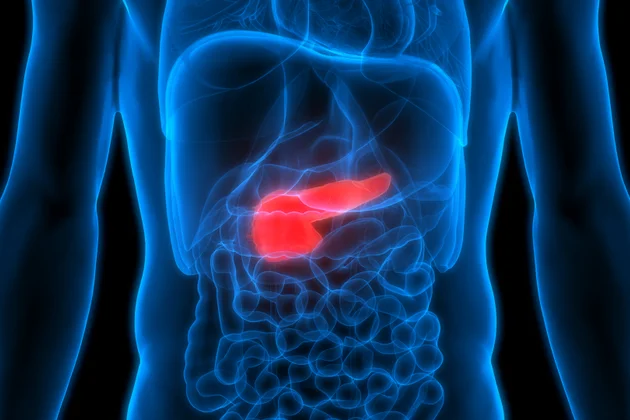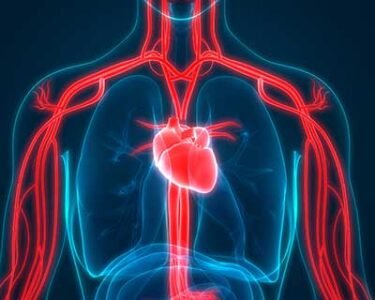Gallbladder cancer is a relatively rare but highly aggressive form of cancer that often goes undetected in its early stages. The gallbladder is a small organ located beneath the liver, responsible for storing bile, which aids in digestion. Unfortunately, gallbladder cancer is difficult to diagnose early because its symptoms often resemble common digestive issues. By the time it is detected, the disease has usually advanced, making treatment challenging. Understanding the early warning signs can make a significant difference in early detection and improved prognosis.
Here are five early symptoms of gallbladder cancer that are often ignored:
1. Persistent Abdominal Pain (Especially in the Upper Right Side)
One of the most common yet overlooked symptoms of gallbladder cancer is dull or persistent pain in the upper right portion of the abdomen, just below the ribs. Many people mistake this discomfort for indigestion, gas, or a gallstone problem.
Initially, the pain may come and go, but as the tumor grows, it becomes constant and more severe. Since this area is also associated with the liver and bile ducts, people tend to dismiss it as a minor digestive issue. If you experience recurring or prolonged pain in this region, it’s important to consult a doctor, especially if accompanied by other symptoms.
2. Unexplained Nausea and Vomiting
Occasional nausea or vomiting is common after a heavy meal or due to minor stomach bugs. However, when these symptoms occur frequently and without any obvious cause, they could indicate a more serious problem. In gallbladder cancer, nausea and vomiting occur because the tumor blocks the bile ducts, affecting digestion and leading to a buildup of waste products in the body.
This symptom is often ignored or attributed to gastritis, food poisoning, or even stress. If nausea and vomiting persist for several days or weeks, and especially if you have other digestive symptoms, it should not be overlooked.
3. Unintentional Weight Loss and Loss of Appetite
Sudden, unexplained weight loss is one of the most significant red flags for many types of cancer, including gallbladder cancer. This usually happens because the body’s metabolism changes as cancer cells grow and spread.
Along with weight loss, people may also notice a reduced appetite or feeling full even after eating small amounts of food. This symptom is often dismissed as a result of stress, depression, or dietary changes. If you are losing weight without trying, it is essential to seek medical advice immediately.
4. Jaundice (Yellowing of Skin and Eyes)
Jaundice is a condition where the skin and whites of the eyes turn yellow due to an excess of bilirubin in the blood. In gallbladder cancer, jaundice occurs when the tumor blocks the bile ducts, preventing bile from flowing properly into the digestive system.
While jaundice is a relatively noticeable symptom, people often associate it with liver diseases like hepatitis rather than gallbladder cancer. If jaundice appears suddenly and is accompanied by abdominal pain or dark urine, it should be taken seriously and evaluated by a healthcare professional.
5. Bloating and Digestive Discomfort
Bloating, gas, and general digestive discomfort are extremely common complaints, which is why this symptom often gets ignored. In the case of gallbladder cancer, bloating can occur because of fluid buildup in the abdomen or as a result of impaired bile flow.
Unlike occasional bloating after a large meal, this discomfort tends to persist and worsen over time. It may also be accompanied by other symptoms like nausea or a feeling of fullness. If you notice frequent bloating that doesn’t improve with diet changes or medication, it’s worth getting checked.
Why These Symptoms Are Overlooked
Most of these symptoms—such as pain, nausea, or bloating—are associated with common digestive problems like gastritis, gallstones, or indigestion. This is why people delay seeking medical attention. Unfortunately, gallbladder cancer progresses silently, and by the time noticeable symptoms appear, it is often in an advanced stage.
When to See a Doctor
If you experience a combination of these symptoms for more than two weeks, especially if you have risk factors such as gallstones, obesity, family history of gallbladder disease, or chronic gallbladder inflammation, consult a doctor immediately. Early diagnosis can significantly improve treatment outcomes.
Bottom Line
Gallbladder cancer may be rare, but it’s extremely dangerous because it often goes undetected in the early stages. Being aware of the subtle signs—such as persistent upper abdominal pain, unexplained nausea, sudden weight loss, jaundice, and chronic bloating—can make a life-saving difference. Do not ignore these symptoms or attribute them to minor digestive issues. Early detection is key to effective treatment and a better prognosis.
Do Follow us on instagram







